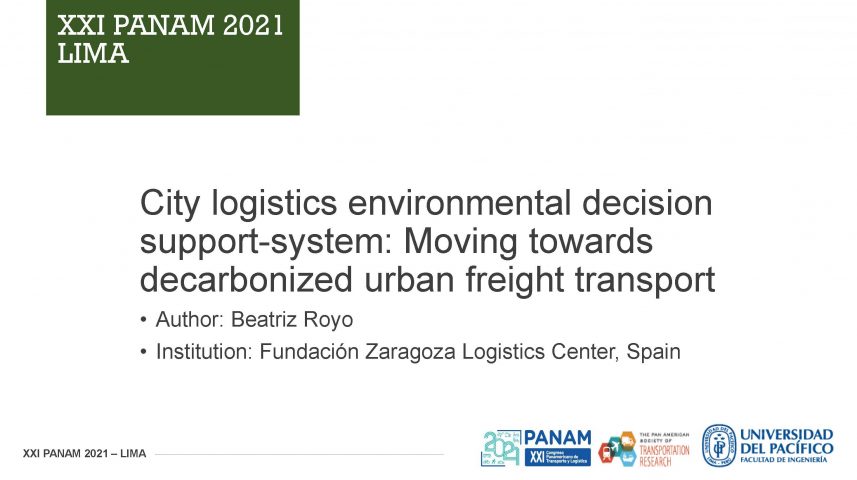Freight transport and emissions are increasing rapidly and, until now, cities were not equipped to handle the associated challenges. Unlike passenger transport, urban planners and city leaders often lack comprehensive understanding, robust data and common terminologies, all of which have major implications for the management of urban freight transport systems. Many cities have recognized the importance of reducing greenhouse gas (GHG) emissions in the freight sector, however, they often lack reliable data to evaluate the freight transport performance and identify future priorities and directions. Calculating emissions is the first step. To this end, the EcoLogistics Self-monitoring Tool is developed collaboratively as a decision support system for local governments to estimate, evaluate and track their urban freight GHG emissions performance over time, as well as to engage in uniformed goal-setting and guide future actions in the most impactful way. The calculation methodology behind the tool is mainly based on the Global Protocol for Community-Scale GHG Emission Inventories: An Accounting and Reporting Standard for Cities (GPC) and the Global Logistics Emissions Council Framework for Logistics Emissions Accounting and Reporting (GLEC Framework).

EcoLogistics Community Overview
May 6, 2021
EcoLogistics in East Asia – The frontier for sustainable urban mobility
September 7, 2021City logistics environmental decision support-system: Moving towards decarbonized urban freight transport
We use cookies on our website to give you the most relevant experience by remembering your preferences and repeat visits. By clicking “Accept All”, you consent to the use of ALL the cookies. However, you may visit "Cookie Settings" to provide a controlled consent.
Manage consent
Privacy Overview
This website uses cookies to improve your experience while you navigate through the website. Out of these cookies, the cookies that are categorized as necessary are stored on your browser as they are essential for the working of basic functionalities of the website. We also use third-party cookies that help us analyze and understand how you use this website. These cookies will be stored in your browser only with your consent. You also have the option to opt-out of these cookies. But opting out of some of these cookies may have an effect on your browsing experience.
Necessary cookies are absolutely essential for the website to function properly. This category only includes cookies that ensures basic functionalities and security features of the website. These cookies do not store any personal information.
Any cookies that may not be particularly necessary for the website to function and is used specifically to collect user personal data via analytics, ads, other embedded contents are termed as non-necessary cookies. It is mandatory to procure user consent prior to running these cookies on your website.
§

